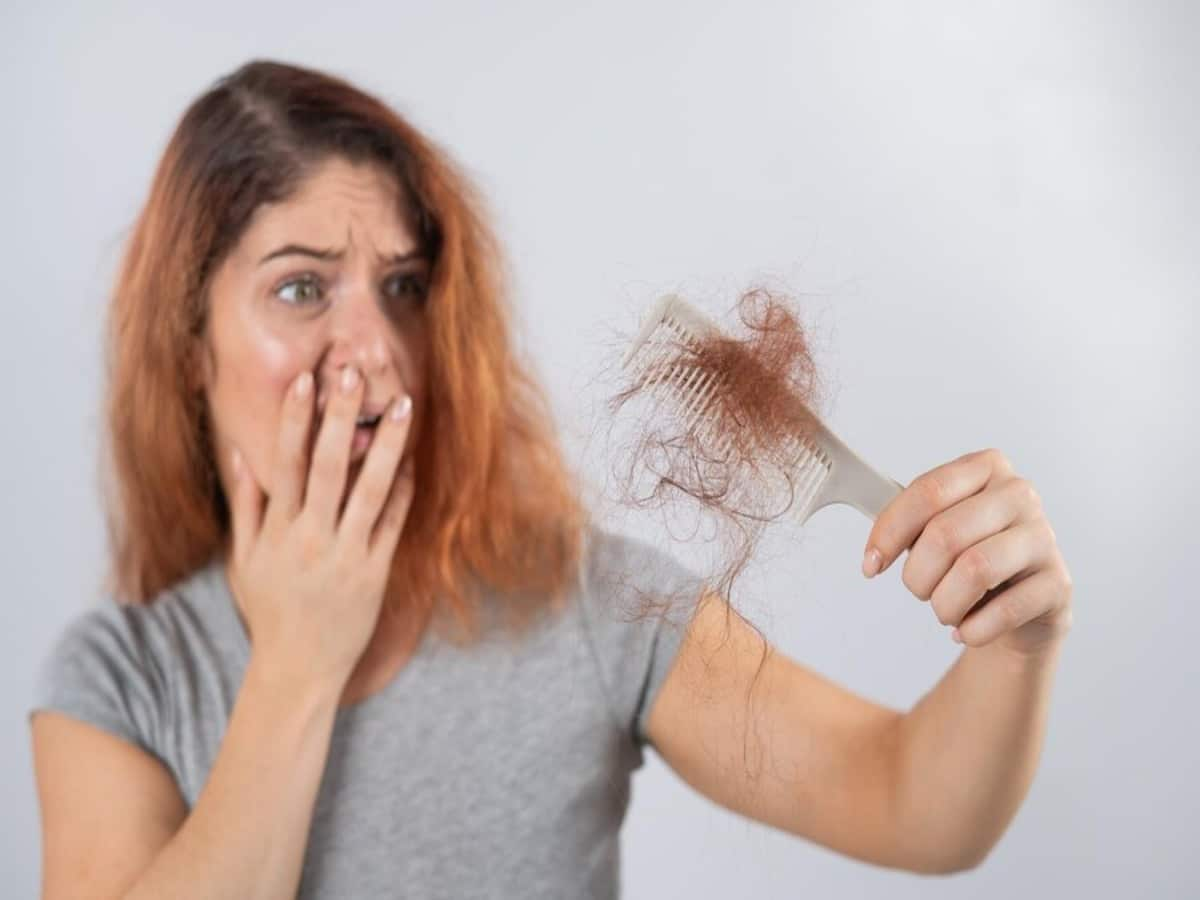Share this @internewscast.com
Women naturally lose around 100 strands of hair per day, and shedding is a normal part of the hair’s life cycle, where old strands fall out and new ones grow in their place. When this natural balance is disrupted, female hair loss can occur.
Hair fall in women has become quite common these days, as compared to earlier days, when it was mostly seen in men of a certain age. These days, stress-induced hair loss is prevalent. Then, there are other health-related setbacks that are a result of poor lifestyle choices — including diet and exercise — that lead to loss of hair volume in women. Experiencing hair loss in your 30s, or at any age, can be incredibly unsettling, because for women, their hair is linked to their overall personality and confidence.
According to Dr Shareefa Chause, a Mumbai-based dermatologist, hair loss in women occurs when there is an ‘unexpected and significant’ increase in the shedding of hair strands. Women naturally lose around 100 strands of hair per day, and shedding is a normal part of the hair’s life cycle, where old strands fall out and new ones grow in their place. When this natural balance is disrupted, female hair loss can occur, which is referred to as alopecia, she said.
What Is Alopecia?
Alopecia areata is a disease that happens when the body’s immune system attacks the hair follicles and causes hair loss. While hair can be lost from any part of the body, alopecia areata usually affects the head and the face. “This condition differs from regular hair shedding or thinning. While some women may not be concerned about the changes in their appearance due to shedding, many others experience feelings of sadness or embarrassment as they notice increased amounts of hair falling out,” Dr Chause said.
Telogen Effluvium
The dermatologist explained that the most common hair loss in females is telogen effluvium, also known as female pattern alopecia or female pattern hair loss (FPHL). It causes thinning of hair on the top. Telogen effluvium occurs due to deficiencies, low Hb levels in female or certain diseases and medications that affect growing hair follicles. “Telogen effluvium happens when a higher number of hair follicles enter the telogen phase, leading to hair shedding,” said the doctor.
The Symptoms
- Noticing numerous broken strands scattered on your brush, the floor, and in the bathroom drain.
- Thinning at the crown of your head, which intensifies over time.
- Developing circular or patchy bald areas that expand.
- Abrupt hair shedding and decreased thickness in ponytails and braids.

What Causes Hair Loss In Women?
Dr Chause explained that hair loss in women can be attributed to a variety of factors, such as:
- Damaged hair follicles
- Alterations in diet leading to rapid weight loss
- Stress
- Nutritional deficiencies
- Chemical hair treatments
- Medical treatments like chemotherapy or radiation therapy
- Underlying health conditions like abnormal thyroid function or anemia
- Hormonal fluctuations during pregnancy or menopause
- Medications
- Genetic predisposition
How To Address Hair Loss In Women?
According to the doctor, possible treatments include reducing stress levels through therapy or counselling; avoiding damaging hair products like chemical treatments; tackling vitamin deficiencies through supplements; preventing harm to hair follicles by avoiding styling; utilising medications as prescribed. “Additional options may involve scalp microneedling, platelet-rich plasma (PRP) injections to stimulate hair growth and, if nothing works, undergoing hair transplant surgery.”
Hair Loss Preventive Measures
This what the doctor recommends:
- Consuming foods rich in vitamins, minerals, and antioxidants to nourish the hair follicles and promote hair growth. Incorporating foods like leafy greens, nuts, and seeds for essential nutrients.
- Chronic stress can contribute to hair loss by disrupting the normal hair growth cycle. Practising relaxation techniques such as meditation, yoga, or deep breathing exercises to support hair health.
- Maintaining a consistent hair care routine is crucial in preventing alopecia in women.
- Using gentle products, avoiding heat styling tools, and minimising chemical treatments to protect the hair from damage and breakage.
- Regular scalp massages with essential oils or serums, as recommended by the doctor to improve blood circulation and promote hair growth.











